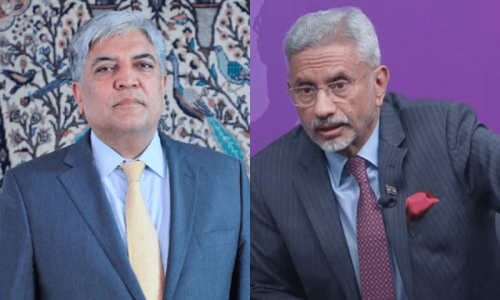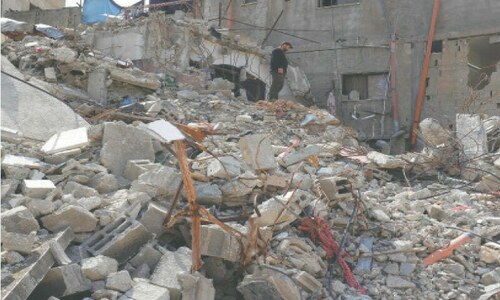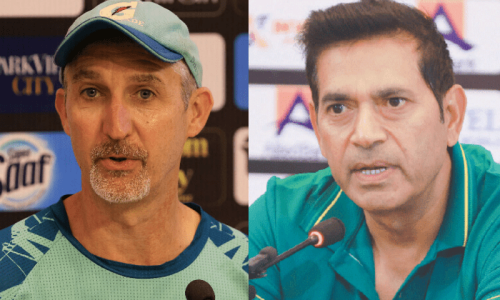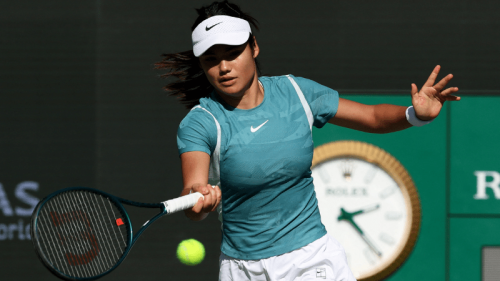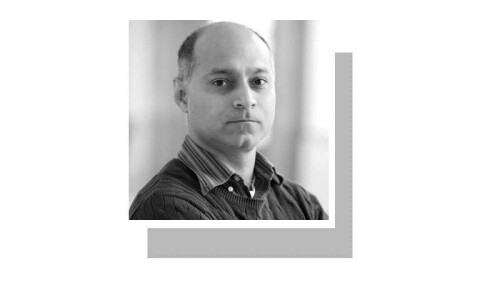
Ali Sardar Jafri was a renowned Urdu poet and scholar and a major voice in subcontinental literature, who transcended the barriers of language and region and was popularly known as a poet of the masses.
A beacon of Progressive Urdu literature, Jafri was born on Nov 29, 1913, at Balrampur, India, where his forbears had long established themselves as members of the affluent, educated and deeply religious upper class. As a young man, however, Jafri was not impressed by the pomp and show exhibited by members of his family and class, which, for him, only underscored the tragic gap between the rich and the poor. He therefore rejected his father’s proposal to get a traditional education in Ismailic lore and instead opted for a modern, Western education. He graduated from the Anglo Arabic College in Delhi and, even as a youngster, showed keen interest in poetry and politics. He was especially inspired by the socialist ideology of communist Russia and became a Marxist during his student life. As a result of his rebellious writings and speeches, he was put in jail a number of times.
Jafri was a founding member of the Progressive Writers’ Movement, which was launched by a group of Indian intellectuals in 1936 in the wake of an anti-Fascist writers’ conference held in Paris, which had been attended by Maxim Gorky, among others. Jafri contributed to the Progressive Writers’ cause through poetry and prose, writing for various literary journals such as Naya Adab, Naya Zamana and Guftugoo. His poetry books such as Khoon Ki Lakeer [The Line of Blood], Asia Jaag Utha [Asia has Awakened], Patthar Ki Deewar [The Stone Wall], Ek Khwaab Aur [One More Dream], Lahu Pukaarta Raha [The Blood Calls] and Parwaaz [Flight] are enough to secure him a well-deserved place in the world of art and thought. In recognition of his outstanding contributions to Urdu literature, he was honoured in 1997 with the Jnanpith Award, India’s highest literary accolade.
Through his poems, prose and speeches, Jafri advocated the cause of the downtrodden, the exploited and the oppressed. He raised his pen and voice against the economic and social injustice prevalent in India and abroad. He was also deeply influenced by the poet-philosopher Allama Muhammad Iqbal and published a book, Iqbal Shanaasi [Understanding Iqbal] in 1977. Jafri intended on establishing that Iqbal was a revolutionary poet and that he had been influenced by Marxism. He argued that Iqbal predated the Progressive Movement in adopting working-class life as a poetic theme.
Indeed, Jafri’s observations on Iqbal, and the relationship of the two authors with Marxism, is evident in many of both Iqbal and Jafri’s works. Iqbal’s social philosophy — concerning major issues such as the production of wealth, distribution of income, the composition of society and the state and political and economic systems — and his interest in Marxism as a significant force in shaping modern thought, can be evidenced from his poems ‘Khizr-i-Raah’ [Khizr the Guide] and ‘Tulu-i-Islam’ [The Rise of Islam] from his 1924 collection Baang-i-Dara [The Call of the Marching Bell]; ‘Payaam’ [Message], ‘Sohbat-i-Raftagan Dar Alam-i-Bala’ [Company of Men Past from the Heavens], ‘Mahavra Mabain Hakeem Fransvi Auguste Comte wa Mard-i-Mazdoor’ [Dialogue Between Auguste Comte and the Labourer], ‘M. Lenin wa Qaiser William’ [Mr Lenin and King William] and ‘Nawa-i-Mazdoor’ [Voice of the Labour] from 1923’s Payaam-i-Mashriq [Message from the East]; ‘Iblees Ki Majlis-i-Shura’ [The Parliament of Satan] from 1938’s Armaghan-i-Hijaz [The Gift of the Hijaz]; ‘Ishtrakiat wa Malukiar’ [Communism and the Monarchy] and ‘Paighaam-i-Afghani Ba Millat-i-Rusiah’ [Afghani’s Message to Soviet Russia] from 1932’s Javed Nama; ‘Karl Marx Ki Awaz’ [The Voice of Karl Marx] and ‘Bolshevik Roos’ [Bolshevik Russia] from 1936’s Zarb-i-Kaleem [The Rod of Moses], as well as ‘Lenin Khuda Ke Huzoor Mein’ [Lenin Before God] and ‘Farman-i-Khuda Farishton Ke Naam’ [God’s Command to His Angels] from his greatest work, 1935’s Baal-i-Jibril [Gabriel’s Wing].
August 1 was the 20th death anniversary of revolutionary Urdu poet Ali Sardar Jafri, who was influenced by both Marx and Iqbal
Thus, Iqbal was familiar with the basic ideas of Karl Marx and Vladimir Lenin. He often advised young men to study economics and the physical sciences, ie concentrate on disciplines other than those that had been cultivated among Indians. He himself had studied economics and had had ample opportunity to reflect on the sociological and economic bases of Marx’s thought. He was aware of the popularity of Marxist ideas in European literary circles at the beginning of the 20th century, when he himself was in Europe. After World War I, the establishment of a socialist state in Russia had a profound effect on him and his poetry emphasised equality, fraternity and social justice.
Evidence of the influence of both Marx and Iqbal on Jafri, in terms of social justice and the awakening of the spirit of selfhood, can be seen from two of Jafri’s poems: ‘Niwaala’ [Morsel] and ‘Ek Khwaab Aur’ [One More Dream]. In the former, Jafri gives voice to the tragic conditions and oppressive circumstances associated with the life of a young boy from the working class. The imagery in the poem is highly evocative of the unjust plight of the labourer, stemming from the inherent inequalities of capitalism. He describes the innocent young boy’s destiny and the realities of his life thus:
Maa hai resham ke kaarkhaanay mein/ Baap masroof sooti mill mein
Kokh se maa ki jab se nikla hai/ Bacha kholi ke kaaley dil mein hai
Jab yahaan se nikal ke jaaey ga/ Kaarkhaanon ke kaam aaey ga
Apnay majboor pait ki khaatir/ Bhook sarmaaey ki barrhaaey ga
Haath sonay ke phool uglengey/ Jism chaandi ka dhan lutaaey ga
Khirrkiyaan hongi bank ki roshan/ Khoon is ka diyay jalaaey ga
Yeh jo nanha hai, bhola bhala hai/ Khooni sarmaey ka niwaala hai
Poochhti hai yeh is ki khaamoshi/ Koi mujh ko bachaanay wala hai?
[The mother sweats in a silk factory/ In a textile mill the father labours Since he left the womb’s darkness/ For the blackness of a hovel When he leaves his dark dungeon/ In a workshop he will sweat and starve To quell his chronic hunger itch/ He will feed the greed of the mighty rich His hands will dig out golden fruit/ His sweat will silver bars produce To light the windows of the banks/ His blood will serve as oil for lamps This little, feeble, innocent child/ Is a morsel fit for Mammonites His eloquent silence supplicates/ “Will someone come to change my fate?”]
This heart-wrenching imagery perfectly illustrates the deep pain Jafri felt for those oppressed by the systemic exploitation of labour within the capitalist relations of production. Jafri echoes Marx’s expositions that the labourer has nothing to sell but his ability to labour, and that he must do so not out of choice, but out of the necessity to survive, for he has no other means of sustaining his existence or feeding himself even a morsel (niwaala). He must submit to the appropriation and devaluation of his labour.
As Jafri illustrates, the boy’s sweat, blood and hands — in essence, his very humanity — are usurped for the commercial benefit of the institutions of capitalism: money (silvers bars and golden fruit), the exchange of money abstracted from labour, and the flow of currency through the profiting banks. The labourer owns no means of production of his own and has no choice but to ‘sweat and starve to feed the greed of the mighty rich’, that he may ‘quell his chronic hunger itch’. This poignant poem concludes on a very moving note, forcing the reader to feel the urgency and the cry for revolutionary action implicit in the imploring of the boy, who asks if ‘someone will come to change my fate?’
This rallying cry for change which Jafri infused into his works, and the influence of Iqbal’s social existentialism upon his thought, are also evident from his poem ‘Ek Khwaab Aur’. In it, he desires for the rebirth of a youthful spirit of revolution and fervour, which he does not want to let go of in the wake of the disappointing post-Partition reality that greatly saddened many Progressive Writers. He exclaims:
Sar kashi, phir main tujhay aaj sadaa deta hoon
Main tira shair-i-aawara-o-bebaak-kharaab
Phaink phir jazba-i-betaab ki aalam pe kamand
Ek khwaab aur bhi ay himmat-i-dushwaar pasand!
[Hear me, O Spirit rebellious; again I give thee a call I, a poet of ill-repute, a reckless, roving bard Cast again on the world the magic of your stirring thoughts Dream another daring dream, O danger-loving resolve!]
Ultimately, then, we can see that in a new, simple, forceful and evocative style, Jafri’s poetry aims to reach the deepest spirit within man and, like his predecessor Iqbal, is able to awaken the greater and more profound ideals of humanity. Progressive writers such as Jafri, who delved into the rich resources of the Urdu language and the imagery of Urdu poetry as a vehicle of expression, were able to deliver powerful ‘anthems of resistance’ and provided the millions, in search of freedom during the 1930s and 1940s, with revolutionary verses which defined an era of social change and struggle for justice.
**Verse translations by M. Yasir Kayani
The writer is a lecturer of law at the University of Punjab*
Published in Dawn, Books & Authors, July 31st, 2020
















